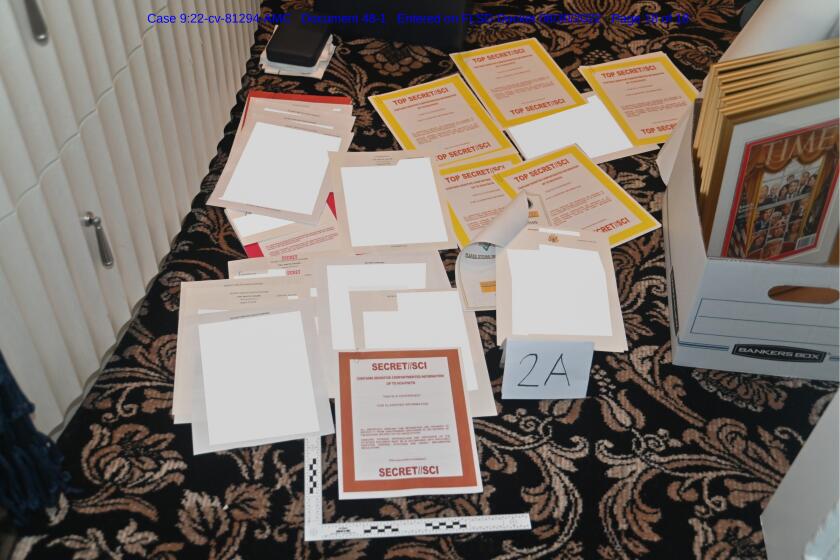New York sues Trump and his company, alleging business fraud

New York attorney general’s lawsuit alleges Trump and his company committed business fraud involving prized assets, including properties in Manhattan.
- Share via
New York’s attorney general sued former President Trump and his company on Wednesday, alleging business fraud involving some of their most prized assets, including properties in Manhattan, Chicago and Washington.
Atty. Gen. Letitia James’ lawsuit, filed in state court in New York, is the culmination of the Democrat’s three-year civil investigation of Trump and the Trump Organization. Trump’s three eldest children, Donald Jr., Ivanka and Eric Trump, were also named as defendants, along with two longtime company executives, Allen Weisselberg and Jeffrey McConney.
The lawsuit seeks to strike at the core of what made Trump famous, scrutinizing the image of wealth and opulence he’s embraced throughout his career — first as a real estate developer, then as a reality TV host on “The Apprentice,” and later as president.
James announced details of the lawsuit at a news conference Wednesday. The case showed up on a court docket Wednesday morning.
“Donald Trump falsely inflated his net worth by billions of dollars to unjustly enrich himself, and cheat the system, thereby cheating all of us,” James said at the news conference.
James’ office has spent more than three years investigating allegedly fraudulent or misleading valuations for the Trump Organization’s properties on annual financial statements that were given to potential business partners, banks or tax officials.
News of hundreds of missing classified documents recovered from former President Trump’s home has the intelligence community reeling and the public asking: “How could it happen?”
The goal, the attorney general’s office has said, was to burnish Trump’s billionaire image and the value of his properties when doing so gave him an advantage, while playing down the value of assets at other times for tax purposes.
James is seeking to remove the Trumps from businesses engaged in the alleged fraud and wants an independent monitor appointed for at least five years to oversee the Trump Organization’s compliance, financial reporting, valuations and disclosures to lenders, insurers and tax authorities.
She is seeking to replace the current trustees of Trump’s revocable trust, which controls his business interests, with an independent trustee.
She also seeks to bar Trump and the Trump Organization from entering into commercial real estate acquisitions for five years, from obtaining loans from banks in New York for five years and permanently bar Trump and his three eldest children from serving as officers or directors in any New York corporation or similar business entity registered and/or licensed in the state.
She also seeks to permanently bar Weisselberg and McConney from serving in the financial control function of any New York corporation or similar business entity registered and/or licensed in New York state.
James said her investigation uncovered potential criminal violations, including falsifying business records, issuing false financial statements, insurance fraud, conspiracy and bank fraud. She said her office is referring those findings to federal prosecutors and the Internal Revenue Service.
Alina Habba, an attorney for Trump, said in a statement that the lawsuit “is neither focused on the facts nor the law — rather, it is solely focused on advancing the Attorney General’s political agenda.”
“It is abundantly clear that the Attorney General’s Office has exceeded its statutory authority by prying into transactions where absolutely no wrongdoing has taken place,” the statement said. “We are confident that our judicial system will not stand for this unchecked abuse of authority, and we look forward to defending our client against each and every one of the Attorney General’s meritless claims.”
More to Read
Get the L.A. Times Politics newsletter
Deeply reported insights into legislation, politics and policy from Sacramento, Washington and beyond. In your inbox three times per week.
You may occasionally receive promotional content from the Los Angeles Times.











